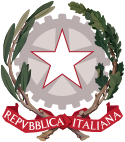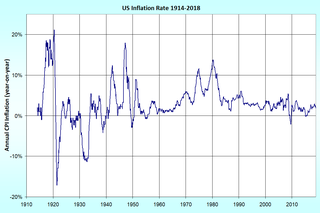
The politics of Italy are conducted through a parliamentary republic with a multi-party system. Italy has been a democratic republic since 2 June 1946, when the monarchy was abolished by popular referendum and a constituent assembly was elected to draft a constitution, which was promulgated on 1 January 1948.

Arnaldo Forlani, is an Italian politician who served as the 43rd Prime Minister of Italy from 18 October 1980 to 28 June 1981. He also held the office of Deputy Prime Minister, Minister of Foreign Affairs and Minister of Defence.

After World War II and the overthrow of Mussolini's fascist regime, Italy's history was dominated by the Christian Democracy political party for 48 years—from the 1946 election until the 1994 election—while the opposition was led by the Italian Communist Party (PCI).
The Historic Compromise, called also Third Phase or Democratic Alternative, was an Italian historical political alliance and accommodation between the Christian Democrats (DC) and the Italian Communist Party (PCI) in the 1970s.
Loris Fortuna was an Italian left-wing politician, and former Member of Parliament since 1963.

The Italian General Confederation of Labour is a national trade union based in Italy. It was formed by agreement between socialists, communists, and Christian democrats in the "Pact of Rome" of June 1944. But in 1950, socialists and Christian democrats split forming UIL and CISL, and since then the CGIL has been influenced by the Communist Party (PCI) and until recent years by its political heirs.

A referendum on the divorce law was held in Italy on 12 May 1974. Voters were asked whether they wanted to repeal a government law passed three years earlier allowing divorce for the first time in modern Italian history. Those voting "yes" wanted to outlaw divorce as had been the case before the law came into effect, and those voting "no" wanted to retain the law and their newly gained right to divorce. The referendum was defeated by margin of 59.26% to 40.74% on a voter turnout of 87.72% out of 37 million eligible voters, thus allowing the divorce laws to remain in force.

General elections were held in Italy on 20 June 1976, to select the Seventh Republican Parliament. They were the first after the voting age was lowered to 18.

General elections were held in Italy on 3 June 1979, to select the Eighth Republican Parliament. This election was called just a week before the European vote: the failure to hold the two elections at the same time caused much criticism for wasting public money.

General elections were held in Italy on 26 June 1983, to select the Ninth Republican Parliament. The Pentaparty formula, the governative alliance between five centrist parties, caused unexpected problems to Christian Democracy. The alliance was fixed and universal, extended both to the national government and to the local administrations. Considering that the election result did not longer depend by the strength of the DC, but by the strength of the entire Pentapartito, centrist electors began to look at the Christian Democratic vote as not necessary to prevent a Communist success. More, voting for one of the four minor parties of the alliance was seen as a form of moderate protest against the government without giving advantages to the PCI. Other minor effects of this election were a reduction of the referendarian Radical Party and the appearance of some regional forces.

General elections were held in Italy on 14 June 1987, to select the Tenth Republican Parliament. This election marked the final inversion of the trend of the entire republican history of Italy: for the first time, the distance between the Christian Democrats and the Communists grew significantly instead of decreasing, and this fact was seen as the result of the deindustrialization of the country. The growth of the service sector of the economy, and the leadership of former PM Bettino Craxi, gave instead a new strength to the Socialists. A remarkable novelty was the rise of the new Green Lists, while a new party obtained its first two parliamentary seats: the Northern League.

General elections were held in Italy on 5 and 6 April 1992 to select the Eleventh Republican Parliament. They were the first without the traditionally second most important political force in Italian politics, the Italian Communist Party (PCI), which had been disbanded in 1991. It was replaced by a more social-democratic oriented force, the Democratic Party of the Left (PDS), and by a minority entity formed by members who did not want to renounce the communist tradition, the Communist Refoundation Party (PRC). However, put together they gained around 4% less than what the already declining PCI had obtained in the 1987 Italian general election, despite PRC had absorbed the disbanded Proletarian Democracy (DP).

The second elections for the European Parliament in Italy were held on 17 June 1984.

Francesco de Martino was an Italian jurist, politician, lifetime senator (1991-2002) and former Vice President of the Council of Ministers. He was considered by many to be the conscience of the Italian Socialist Party.

The Italian regional elections of 1985 were held on May 12. The fifteen ordinary regions, created in 1970, elected their fourth assemblies.

Four referendums were held in San Marino on 16 March 2008. Voters were asked questions on the voting system, raising salaries in line with inflation, projects, and the abolition of temporary employment contracts. As voter turnout was just 35.36%, all four referendums failed to pass the 32% quorum of registered voters required.
The Pentapartito, commonly shortened to CAF refers to the coalition government of five Italian political parties that formed between June 1981 and April 1991. The coalition comprised the Christian Democracy (DC) party and four secular parties: the Italian Socialist Party (PSI), Italian Democratic Socialist Party (PSDI), Italian Liberal Party (PLI) and Italian Republican Party (PRI).

Craxism was and is according to some extant, an Italian political ideology based on the thought of socialist leader Bettino Craxi, who was also Prime Minister in the 1980s. It was informal ideology of the Italian Socialist Party from 1976 to 1994, the year of the end of the "First Republic" and of PSI, because of strong corruption scandals.




















